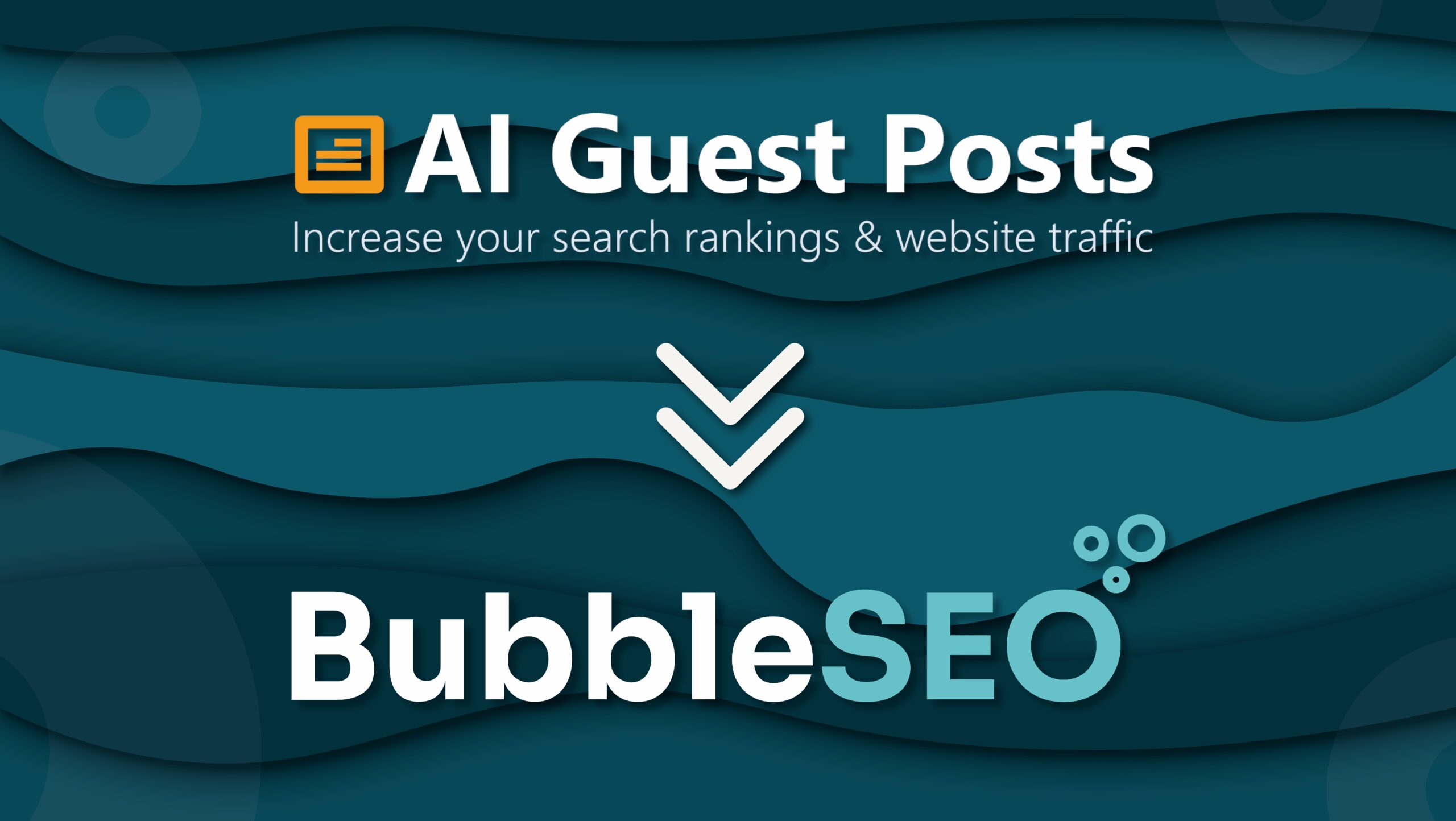
With Black Friday almost upon us, we have put together some tips of how you can get ahead with your socials

In today’s digital world, small businesses face increasing challenges in standing out online. Your content, SEO strategy, and overall online presence play a crucial role in ensuring your business gets noticed. But with so much competition, how do you cut through the noise? Investing in professional content writing services can make all the difference. Here’s how: Boosting SEO with High-Quality Blog Content Blogs are a powerful tool for improving your website’s SEO rankings while providing valuable and engaging content for your audience. According to HubSpot, businesses that blog get 55% more website visitors than those that don’t. Regularly publishing well-written blogs can: Establish your expertise in your industry. Keep your audience informed and engaged. Enhance your website’s authority in search engines. SEO tools like SEMrush can help identify the right keywords and topics to focus on, ensuring your blog content is both relevant and high-performing. Well-crafted blog content doesn’t just attract readers—it builds trust and converts them into loyal customers. Bubble SEO’s content writing services can help you create blog content that delivers real results. SEO-Optimised Product Descriptions for E-Commerce For e-commerce businesses, product descriptions do more than inform customers—they also play a crucial role in SEO. Optimised product descriptions can: Help products rank higher on search engines. Improve user experience with clear, compelling copy. Encourage customers to make informed purchase decisions. A great product description speaks directly to your customer’s needs while naturally incorporating relevant keywords. Professional content writers ensure that your product descriptions are engaging, error-free, and designed to boost visibility and conversions. Repurposing Content for Maximum Impact A strong brand voice requires cohesive and consistent messaging across multiple platforms. Repurposing content allows you to: Reinforce your brand identity. Increase engagement on social media, newsletters, and website pages. Improve your SEO by distributing valuable content across different channels. Additionally, content can be repurposed for email marketing campaigns—one of the most effective digital marketing channels, with an ROI of £42 for every £1 spent in the UK. A well-executed content strategy ensures seamless, impactful campaigns that drive engagement and conversions. 4. Compelling Copy for Paid Ads & PPC Campaigns Paid advertising and pay-per-click (PPC) campaigns rely on strong, persuasive copy. Well-crafted ad content can: Capture attention and increase click-through rates. Convince potential customers to take action. Enhance your return on investment (ROI) for digital ads. Think of your ad copy as your business’s first impression—engaging and persuasive content can be the difference between a missed opportunity and a new customer. Bubble SEO’s team specialises in creating ad copy that converts. 5. Improving Local SEO Rankings If your business operates in a specific location, ranking higher for local search terms is essential. Content writing services can support local SEO efforts by: Creating location-specific blog content. Developing targeted landing pages with optimised copy. Enhancing your Google visibility for searches relevant to your area. According to Google, 46% of all searches have local intent, meaning businesses that optimise for local SEO have a much higher chance of attracting customers in their area. Whether you run a coffee shop, a boutique, or a consultancy, strong local SEO strategies can bring more people to your door—both digitally and physically. Why Content Writing Services Are a Smart Investment As a small business owner, balancing content creation with day-to-day operations can be overwhelming. High-quality, SEO-optimised content isn’t just about ranking higher on Google—it’s about telling your brand’s story, engaging your audience, and turning visitors into customers. By outsourcing content writing, you ensure your online presence remains consistent, professional, and impactful. In a competitive digital world, compelling content isn’t a luxury—it’s a necessity.
In today’s digital world, small businesses face increasing challenges in standing out online. Your content, SEO strategy, and overall online presence play a crucial role in ensuring your business gets noticed. But with so much competition, how do you cut through the noise? Investing in professional content writing services can make all the difference. Here’s how:
Blogs are a powerful tool for improving your website’s SEO rankings while providing valuable and engaging content for your audience. According to HubSpot, businesses that blog get 55% more website visitors than those that don’t. Regularly publishing well-written blogs can:
SEO tools like SEMrush can help identify the right keywords and topics to focus on, ensuring your blog content is both relevant and high-performing. Well-crafted blog content doesn’t just attract readers—it builds trust and converts them into loyal customers. Bubble SEO’s content writing services can help you create blog content that delivers real results.
For e-commerce businesses, product descriptions do more than inform customers—they also play a crucial role in SEO. Optimised product descriptions can:
A great product description speaks directly to your customer’s needs while naturally incorporating relevant keywords. Professional content writers ensure that your product descriptions are engaging, error-free, and designed to boost visibility and conversions.
A strong brand voice requires cohesive and consistent messaging across multiple platforms. Repurposing content allows you to:
Additionally, content can be repurposed for email marketing campaigns—one of the most effective digital marketing channels, with an ROI of £42 for every £1 spent in the UK. A well-executed content strategy ensures seamless, impactful campaigns that drive engagement and conversions.
4. Compelling Copy for Paid Ads & PPC Campaigns
Paid advertising and pay-per-click (PPC) campaigns rely on strong, persuasive copy. Well-crafted ad content can:
Think of your ad copy as your business’s first impression—engaging and persuasive content can be the difference between a missed opportunity and a new customer. Bubble SEO’s team specialises in creating ad copy that converts.
5. Improving Local SEO Rankings
If your business operates in a specific location, ranking higher for local search terms is essential. Content writing services can support local SEO efforts by:
According to Google, 46% of all searches have local intent, meaning businesses that optimise for local SEO have a much higher chance of attracting customers in their area. Whether you run a coffee shop, a boutique, or a consultancy, strong local SEO strategies can bring more people to your door—both digitally and physically.
Why Content Writing Services Are a Smart Investment
As a small business owner, balancing content creation with day-to-day operations can be overwhelming. High-quality, SEO-optimised content isn’t just about ranking higher on Google—it’s about telling your brand’s story, engaging your audience, and turning visitors into customers.
By outsourcing content writing, you ensure your online presence remains consistent, professional, and impactful. In a competitive digital world, compelling content isn’t a luxury—it’s a necessity.
Grow your business online with content marketing solutions from Bubble SEO today.
Place An Order
With Black Friday almost upon us, we have put together some tips of how you can get ahead with your socials

In the ever-evolving landscape of digital marketing, staying ahead in search engine rankings is a critical goal for businesses and outreach

We're excited to announce that AI Guest Posts has undergone a transformative rebranding and is now known as Bubble SEO. This strategic move has allowed the business to develop within the digital landscape and highlight our commitment to providing digital marketing solutions tailored to enhance online visibility and engagement for our customers. Bubble SEO remains dedicated to delivering high-quality, targeted content and effective SEO solutions that align with evolving digital marketing trends. Here is a little more information about our brand and its services. Our services: At Bubble SEO, we specialise in three core services, with content writing being a new feature to the website: Guest Posting: Which aims to enhance your online presence with high-quality guest posts on authoritative websites, driving traffic and boosting your SEO rankings. Link Building: Helps build a robust backlink profile with strategic link building services that improve your website's authority and visibility. Content Writing: Provides engaging content for your audience with compelling content tailored to your brand voice and SEO needs. Benefits of Bubble SEO: We have now made changes to the booking process to simplify this, and updated the customer dashboard section in the hope to improve our existing values below: Enhanced Service Quality: With our rebranding comes a renewed focus on delivering top-notch services that exceed your expectations. Improved User Experience: Our new website offers a streamlined interface, making it easier for you to navigate and access our services. Expanded Network: Benefit from our expanded network of partner websites, ensuring broader outreach and better opportunities for your business. Loyalty Rewards: As a token of our appreciation for the continued support of our bookers, we have now introduced loyalty rewards: Exclusive Discounts: Enjoy special discounts as a loyal Bubble SEO customer, with the more points you acquire, the more exciting offers you will unlock. We're thrilled about this new chapter as Bubble SEO and look forward to continuing to be your trusted partner in achieving your digital marketing goals. Stay tuned for more exciting updates and announcements! Discover the new Bubble SEO and elevate your online presence today! Jennifer Hobson – Digital Marketing [email protected] Heather Ryan – Business Development [email protected]

Content marketing research is an essential marketing technique, specifically looking into what should be involved in

If you're new to SEO, navigating through its many layers can seem overwhelming. However, by following a clear, structured approach, you can start optimising your website and boosting your rankings effectively. Here's The Ultimate SEO Checklist for Beginners to help you understand the fundamentals and ensure you're on the right path to success. 1. Keyword Research Keywords form the foundation of any SEO strategy. Start by identifying the main keywords that are relevant to your business or niche. Tools like Google Keyword Planner, Ahrefs, or SEMrush can help you find high-traffic keywords with low competition. Target Long-Tail Keywords: These are more specific phrases that are less competitive and can help you capture targeted traffic. For example, instead of just "SEO," use "SEO for small businesses" or "SEO checklist for beginners." Understand User Intent: Ensure your keywords align with what your target audience is searching for, and use them naturally in your content. 2. On-Page SEO Optimisation Once you've identified your keywords, it's time to optimise your website pages. Title Tags: Include your primary keyword in the title tag, ideally at the beginning. Keep it under 60 characters. Meta Descriptions: Write compelling meta descriptions with your primary keyword to improve click-through rates (CTR). Header Tags: Use headers to structure your content, with the primary keyword in the H1 tag and related keywords in the H2 and H3 tags. Image Alt Text: Include keywords in the alt text of images to help search engines understand the context of your visuals. 3. Create High-Quality Content Content marketing is at the heart of SEO success. Focus on providing valuable, informative, and engaging content that resonates with your audience. Write for Humans First: Avoid keyword stuffing and prioritise creating helpful content that satisfies the needs of your readers. Use Keywords Naturally: Place your primary keyword in the first 100 words, and sprinkle related keywords throughout the text. However, keep the flow natural. Content-Length: While there’s no magic number, longer content (1000+ words) often ranks better, but only if it provides comprehensive value. Consistent Blogging: Regularly publish fresh blog posts on topics relevant to your audience, leveraging your target keywords. 4. Mobile Optimisation With mobile traffic now surpassing desktop, it’s critical that your website is optimised for mobile users. Responsive Design: Ensure your website is mobile-friendly and loads quickly on all devices. Fast Page Load Times: Use tools like Google PageSpeed Insights to check and improve your site’s speed. Slow sites can hurt both rankings and user experience. 5. Build Strong Backlinks Link building is essential for establishing your site's authority in your industry. The more high-quality backlinks (external sites linking to your content) you have, the better your chances of ranking higher in search results. Guest Posting: Write guest posts for reputable blogs within your niche and include backlinks to your site. This helps both SEO and brand visibility. Internal Linking: Link to other relevant content on your website to create a clear structure and boost page authority. Earn Editorial Links: Create high-quality, shareable content that others in your industry will naturally link to, such as guides, infographics, or data-driven reports. 6. Technical SEO Technical SEO ensures that your website is easy for search engines to crawl and index. Submit XML Sitemap: Make sure your site is indexed by submitting an XML sitemap to Google Search Console. Fix Broken Links: Use tools to identify and repair any broken links on your site, as they can hurt both user experience and SEO. Enable HTTPS: If your site doesn’t have an SSL certificate, secure it with HTTPS to protect users and improve rankings. 7. Track and Analyse Your Results SEO is an ongoing process. You need to monitor and measure your performance to see what’s working and what needs improvement. Use Google Analytics: Track your site’s traffic, top-performing pages, and where your visitors are coming from. Monitor Rankings: Regularly check how your keywords are ranking in search engines, and adjust your strategy accordingly. Watch Your Competitors: Keep an eye on competitors who rank well for your target keywords and analyse what they are doing right. By following this SEO checklist, beginners can set a strong foundation for long-term SEO success. From keyword research and content marketing to link building and technical SEO, each step is vital for improving your website’s rankings and visibility. Stay consistent, be patient, and continually refine your strategy as you track your results. With time and effort, you’ll start seeing the benefits of your SEO efforts!

When making a guest post, it is important to track your metrics of your site and help you to improve.

Google is known for its constant algorithm updates, with the goal of improving the quality of search results and enhancing the user experience. In 2024, several significant updates have rolled out, impacting how websites are ranked and how marketers approach their SEO strategies. Below, we explore the key changes and what they mean for businesses and digital marketers. 1. Focus on Helpful Content: The "Helpful Content" Update One of Google's core focuses this year has been on promoting "helpful content". The Helpful Content Update prioritises pages that provide real value to users over those stuffed with keywords or created solely for ranking purposes. Google’s AI now does a better job of determining the true intent behind content, rewarding pages that genuinely address user needs. How to Adapt: Audience-Centric Content: Ensure your content addresses user queries comprehensively and prioritises providing answers or solutions rather than just boosting rankings. Remove Fluff: Thin, repetitive, or overly-optimised content can hurt your rankings. Focus on improving the depth and originality of your articles. User Satisfaction Signals: Pay attention to user engagement metrics, such as time on page and bounce rate, as these can indicate how "helpful" users find your content. 2. Enhanced E-E-A-T: Experience, Expertise, Authoritativeness, and Trustworthiness Google has added an extra "E" to E-A-T, now called "E-E-A-T"—"Experience." This addition means Google now considers whether content creators have first-hand experience on the topics they discuss. This change is particularly impactful in areas like health, finance, and other “Your Money, Your Life” (YMYL) niches. How to Adapt: Author Expertise: Ensure content is created or reviewed by individuals with direct experience or expertise in the field. Author Bios and Credibility: Include detailed author bios, qualifications, and links to credible sources that verify the author's expertise. First-Hand Accounts: Incorporate personal experiences, case studies, and testimonials into your content to demonstrate true experience. 3. Page Experience Update: Mobile-First and Core Web Vitals Google continues to push the importance of user experience with updates to its Page Experience metrics, especially emphasising mobile usability and Core Web Vitals. The Core Web Vitals include metrics such as Largest Contentful Paint (LCP), First Input Delay (FID), and Cumulative Layout Shift (CLS), all of which measure the quality of a user’s interaction with your website. How to Adapt: Speed Optimisation: Optimise your website's loading speed, with particular focus on mobile devices. Stability and Responsiveness: Minimise layout shifts that might frustrate users, and ensure that interactive elements are highly responsive. Mobile-Friendly Design: Test your website across various devices and screen sizes to ensure a seamless mobile experience. 4. AI and Conversational Search: Integration of Generative AI Results Google has rolled out more integrations of generative AI and conversational search features into their search engine results. Google's Search Generative Experience (SGE) aims to provide more interactive, AI-driven results that summarise complex queries in a conversational way. This impacts the traditional search result layout and the visibility of featured snippets. How to Adapt: Structured Data Usage: Ensure your website uses structured data to help Google understand your content better and make it more likely to be included in AI-generated responses. Conversational Content: Incorporate a natural, conversational tone into your content, anticipating longer, more complex queries that users might ask AI. Focus on Rich Answers: Create content that answers questions in a concise, authoritative manner to increase chances of being included in AI summaries or rich answers. 5. Spam and Link Quality Updates Recent updates have also focused on cracking down on spammy practices and low-quality link building. Google's SpamBrain AI is better at detecting manipulative link schemes and penalising websites involved in unnatural link practices. It’s clear that Google’s push for higher quality extends to off-page SEO as well. How to Adapt: High-Quality Backlinks: Focus on acquiring backlinks from reputable, relevant sources rather than quantity. Check out Ahrefs’ Guide to Quality Backlinks for strategies. Disavow Low-Quality Links: Regularly audit your backlink profile and disavow any links from spammy or irrelevant sites using the Google Disavow Tool. Avoid Link Manipulation: Avoid engaging in link exchanges, PBNs, or other tactics that could be flagged as manipulative. Conclusion: Staying Ahead of Google Updates Google’s recent updates underscore its commitment to improving user experience, content quality, and combatting spam. SEO professionals and content creators must adapt by prioritising helpful, experience-driven content, optimising user experience metrics, and focusing on high-quality, ethical link-building practices. Staying informed about these changes and continuously refining your SEO strategy are key to maintaining strong visibility in search results. Remember, Google's updates are ultimately aimed at rewarding websites that provide real value to users—so focus on creating the best possible experience for your audience, and you'll stay on the right side of these changes.